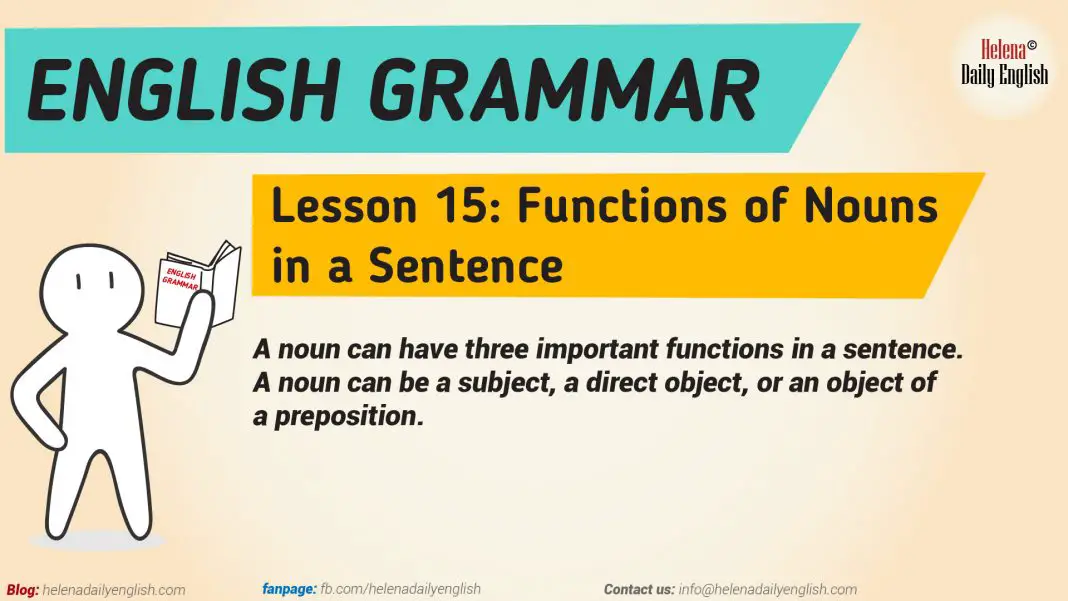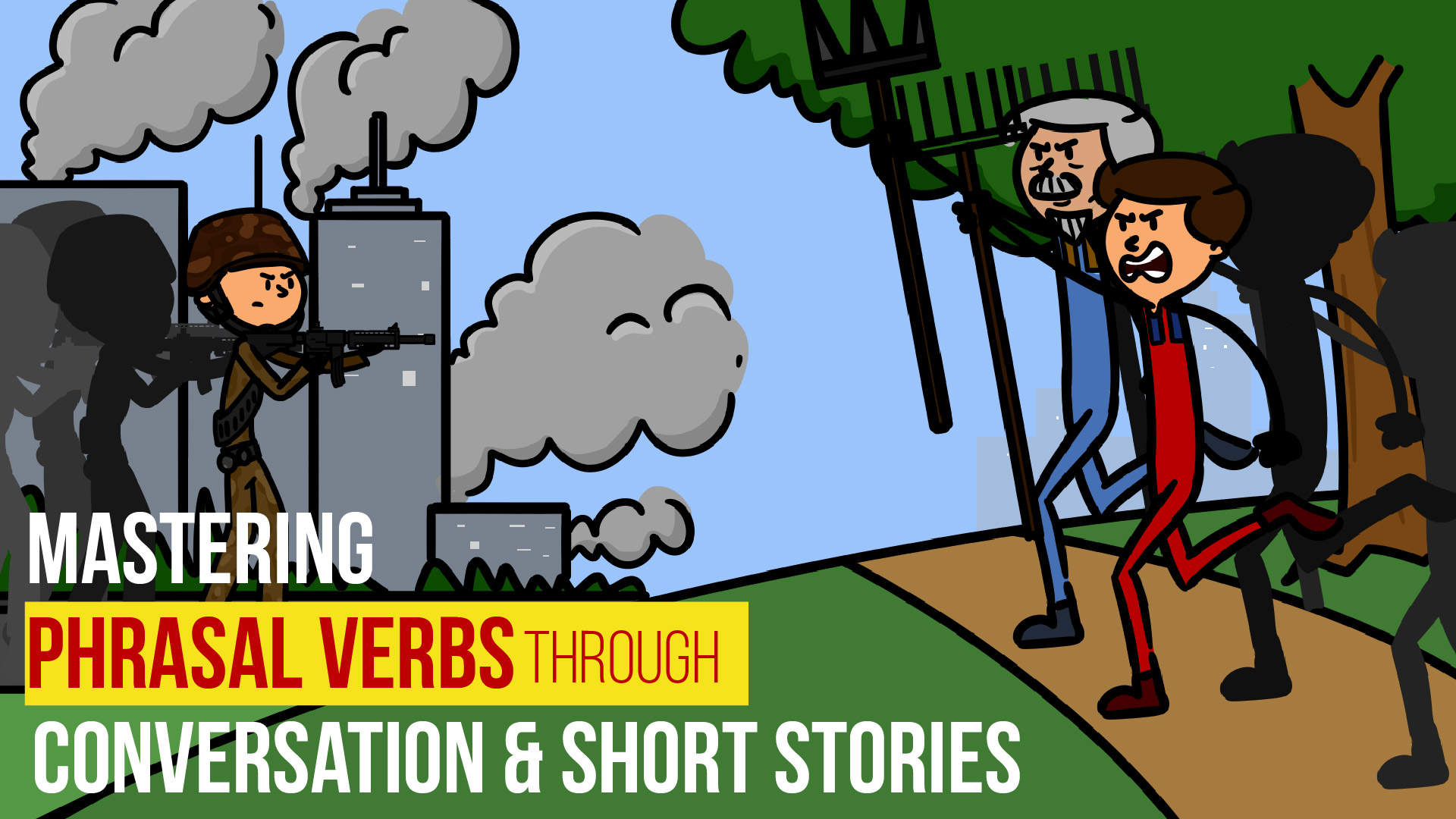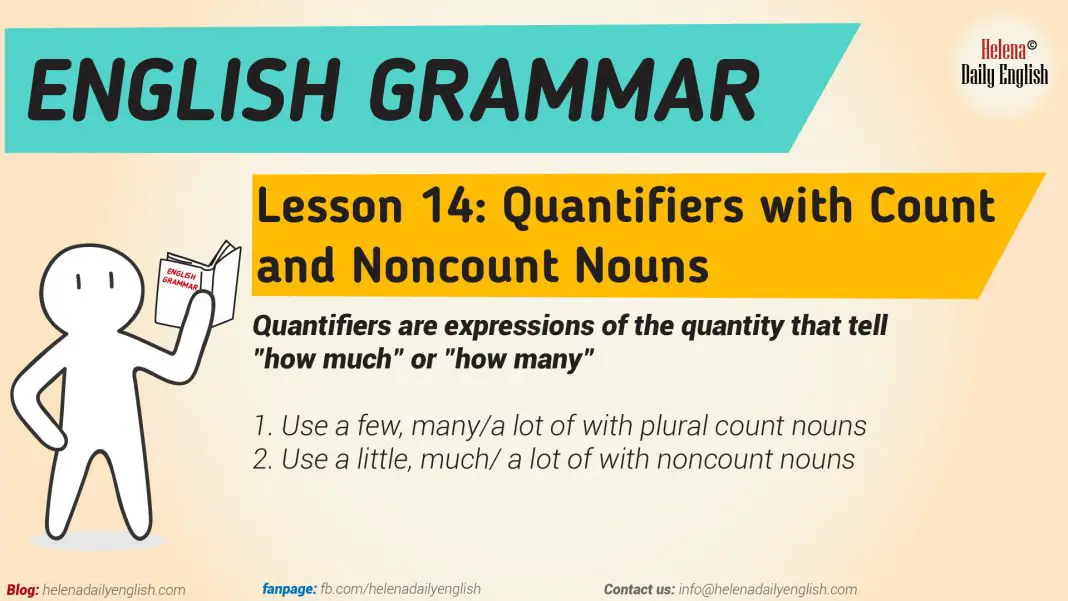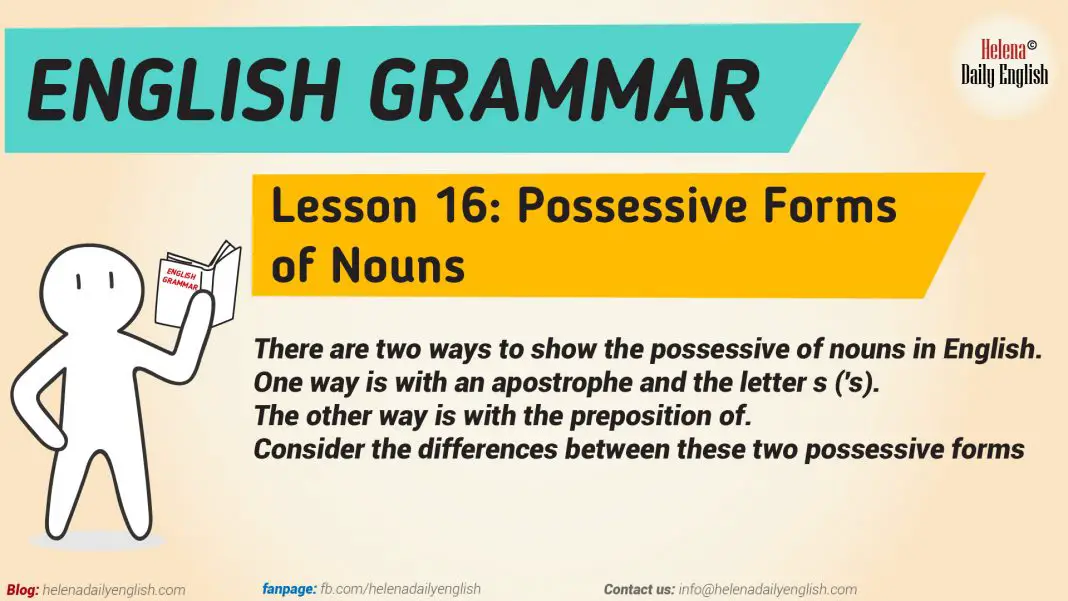Learn English Grammar: Lesson 15 – Functions of Nouns in a Sentence
A noun can have three important functions in a sentence. A noun can be a subject, a direct object, or an object of a preposition.
- subject: Mrs. Williams is eighty years old.
- direct object: Because it was her birthday, we called Mrs. Williams.
- object of a preposition: I talked about Mrs. Williams with my family.
-
Nouns as Subjects
One function of a noun is the subject of a sentence. The subject of a sentence is the noun (or pronoun) that does the action of the verb. The subject can be a single word, such as rock, or a noun phrase. A noun phrase consists of a noun and all the words that go with it such as a heavy gray rock
- Kangaroos jump incredibly high
- A kangaroo has a very special tail
- They use their long, heavy tails for balance
to find the subject, first find the verb(the action word) in the sentence. Then ask: “who” or “what” does the action of the verb? The answer will be the subject
Kangaroos jump incredibly high
- Question What is the action word?
- Answer: jump = action = verb
- Question: Who or What jump?
- Answer: Kangaroos = doer of action = subject
2. Nouns as Direct Objects
A sentence often has a noun after the verb. This noun is called the direct object. The direct object tells who or what receives the action of the verb.
Monkeys eat bananas.
- Question: What is the verb?
- Answer: eat = action = verb
- Question: Who or what eats?
- Answer: monkeys = doer of action = subject
- Question: What does the monkey eat?
- Answer: bananas = receiver of action = direct object
3. Nouns os Objects of Prepositions
The third function of a noun in a sentence is the object of a preposition. The object of a preposition is found within a prepositional phrase, which usually consists of a preposition and the words that go with it.
Ex: Susan walked to the supermarket in the morning.
- to the supermarket: PREP + OBJECT
- in the morning: PREP + OBJECT
A preposition may be followed by a noun or a pronoun and the words that go with it. The noun can be a concrete noun, an abstract noun, or a verb used as a noun (gerund).
- I went to the bank, (bank = concrete noun)
- I believe in complete honesty, (honesty = abstract noun)
- I am in favor of taking a break now. (taking = verb used as noun = gerund)
- I gave the money to him yesterday, (him = pronoun)
Learn English Grammar: Lesson 16 – Possessive Forms of Nouns





